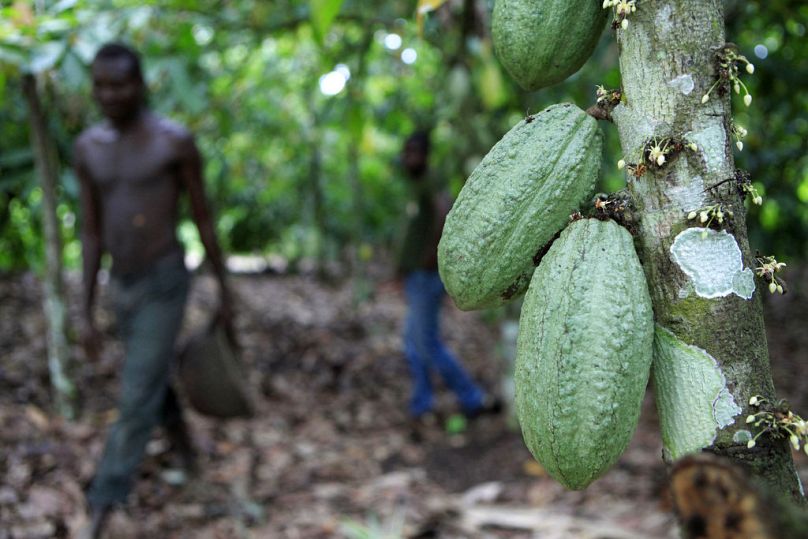The EU was widely lauded for its pioneering anti-deforestation law. Now, although new data just found that global forest loss is still rampant, some EU countries are trying to sabotage it before it’s even been implemented, Julia Christian writes.
In December 2022, the EU took a historic step in the fight against deforestation.
 ADVERTISEMENT
ADVERTISEMENT
 ADVERTISEMENT
ADVERTISEMENT
Following years of intense political debate and tireless campaigning by NGOs, the EU Regulation on deforestation-free products (EUDR) became law.
For the first time, companies will be banned from selling certain high-risk commodities — including palm oil, cocoa, beef and soy — in the EU, unless they can prove that they are deforestation-free and produced legally.
Just a few years ago, the notion that the EU would pass a law constraining companies in this way seemed unattainable. But it became a reality.
The need for such legislation could hardly be greater.
Agriculture is the biggest driver of tropical deforestation in the world, and the EU is the second biggest global importer of products that cause deforestation.
New Global Forest Watch data released on 4 April show that the world lost an area nearly as big as Switzerland last year, causing CO2 emissions the equivalent of nearly half of the annual fossil fuel emissions of the US. Forest clearance for agri-commodities also displaces traditional and Indigenous communities.
The EU’s laudable attempt to end its complicity in this was an example for the rest of the world. Last week, however, some EU member states’ ministers threw a spanner in the works.
The axe keeps swinging
In the latest of a series of backlashes against progressive EU environmental policies, Agriculture Ministers from seven EU member states called for a delay in implementing the EUDR.
According to them, the law will place a disproportionate administrative burden on the European agricultural sector.
If this effort at undermining the EUDR succeeds, the impact on the EU’s international credibility will be disastrous: sending the rest of the world the unmistakable signal that the EU will take decisive action to end the destruction of forests abroad, but not at home.
Responding to this disturbing move, 40+ NGOs from 15 EU states wrote an open letter to EU member states decrying this attempt at sabotaging the law while calling for Brussels to implement it without delay.
The painstaking work of implementing the EUDR has already begun. And although there is much detail to be resolved and big hurdles to be overcome, there are signs that it is already driving structural improvements on the ground in tropical forested countries.
For example, in Cote d’Ivoire, progress has sped up on finalising a national traceability system to ensure cocoa is not coming from deforested areas. Many companies and farmer cooperatives, moreover, have invested significant capital to ensure they will be ready to comply with the law when it enters into force in 2025.
It’s time to support and implement
This is not the time to undermine the law. It’s time to implement it.
Austria and its supporters are flouting EU democratic principles by trying to alter legislation that the European Parliament and member states have already passed.
They are also attacking a measure which is hugely popular amongst EU citizens: 87% of Europeans want the EU to legislate to stop importing deforestation, with a record-breaking number (1.2 million people) responding to a public consultation about it in order to support the law. Walking back on the regulation would be a huge public scandal.
Rather than blaming the EU for a law they have agreed to, EU member states need to provide dedicated support to their own small-scale farmers, who have lower capacity than the large companies, to help comply with the regulation.
Instead of acquiescing to those determined to undermine the fight against deforestation, the EU must continue being a global leader in the battle.
Julia Christian is Forests and Agriculture Campaigner at Fern, an international NGO created in 1995 to keep track of the EU's involvement in forests.
At Euronews, we believe all views matter. Contact us at view@euronews.com to send pitches or submissions and be part of the conversation.











